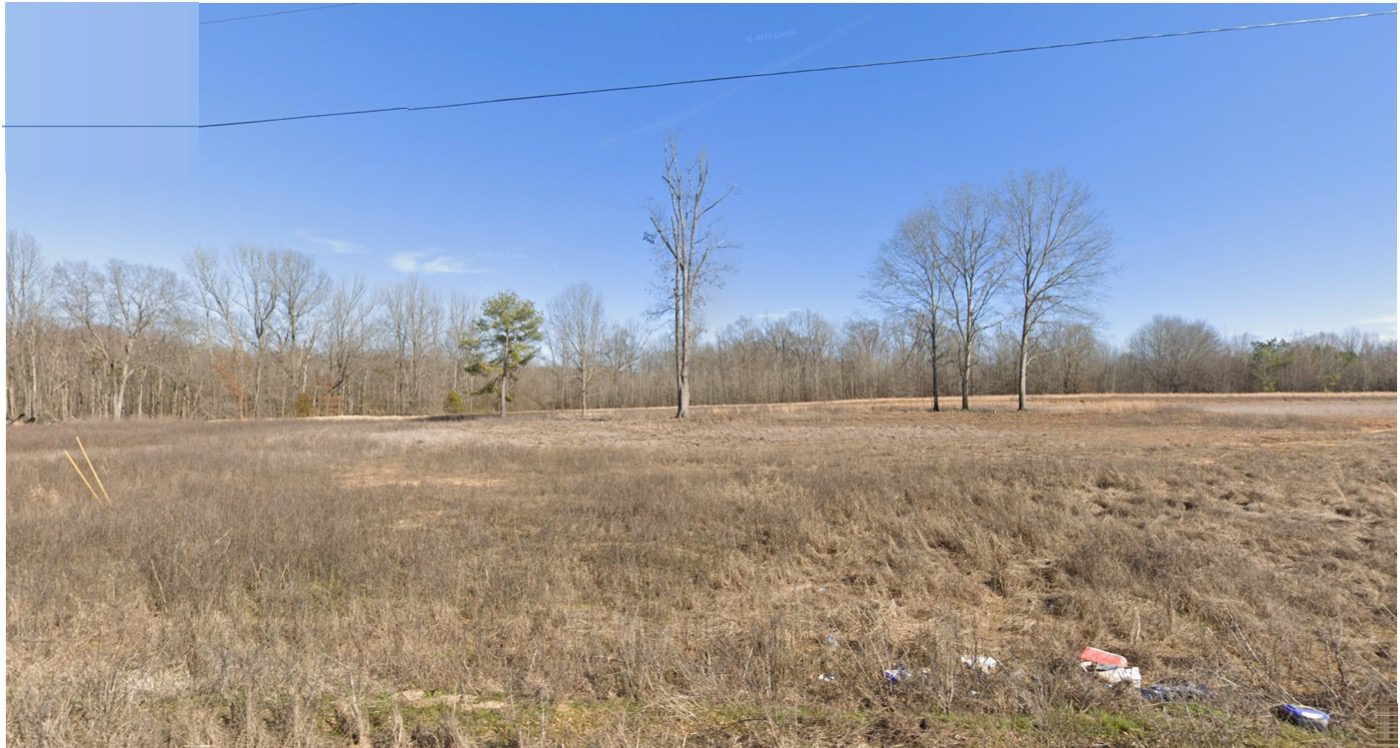Local Markets vs. Out-of-State Investing
Most investors start close to home. They buy where they live, know the neighborhoods, and feel confident they can drive by their properties. But that approach—while comfortable—often limits opportunity. The truth is, the best markets for real estate investors are rarely the ones they live in. Experienced investors look for data-driven ways to evaluate risk and returns across multiple states, and they follow the numbers, not geography.
“Local familiarity isn’t a strategy,” says Brian Conlon, Director of Business Development at Meridian Pacific Properties. “Successful investors look beyond state lines and focus on markets where the fundamentals work—where legal, financial, and economic conditions align to generate sustainable returns.”
That’s exactly what Meridian has built its business on. For nearly two decades, Meridian has been using their proprietary 9-Point Market Evaluation System to identify metro areas with the highest risk-adjusted potential for single-family rental (SFR) investments. It’s a more comprehensive approach than most national lists or generic rankings because it measures real-world investor outcomes—not just growth headlines.
For Investors. By Investors.
More than that, this is the system that the owners of Meridian used to build their own wealth in real estate. Before the company was founded in 2006, the owners were both living in California—building careers, raising families, and investing in real estate. But the math no longer worked. High property prices, heavy regulation, and rising insurance costs made it increasingly difficult to earn reliable returns.
What started as a personal search for better opportunities soon became a business dedicated to helping others do the same. Meridian was built from the ground up by investors who experienced the challenges of being limited to their local California market and the work it takes to manage properties firsthand. Today, Meridian makes it easy for investors from across the country to invest out-of-state in top-performing markets and build wealth through real estate.
For many investors, acknowledging the value of out-of-state opportunities is only the first step. The real question becomes: how do you decide which markets are worth your capital and trust? Meridian’s team recognized early that investors need an objective, data-driven framework to evaluate and benchmark markets on equal terms, allowing for meaningful comparisons across regions. That’s where the company’s 9-Point Market Evaluation System comes in.
“Our nine-factor system takes the emotion out of market selection,” says Conlon. “It’s an analytical model that prioritizes long-term performance and minimizes risk.”
The 9-Point Market Evaluation System
Meridian’s 9-Point Plan evaluates metropolitan areas based on the key factors that determine long-term rental property performance. It measures both macroeconomic and local market variables—things investors can’t control but must anticipate. First, let’s identify the nine different criteria used in the evaluation and indicators of a strong real estate market for investors.
-
Strong Economy
- A resilient, diverse economy creates stable employment and reliable rental demand. Markets driven by logistics, healthcare, manufacturing, or higher education sustain occupancy during economic cycles and attract long-term tenants.
-
Stable Appreciation
- Consistent, moderate price growth supports refinancing and long-term portfolio value without introducing volatility. Markets where appreciation tracks wage growth typically outperform speculative ones over a decade.
-
Supply and Demand
- The balance between new construction and population growth dictates rent pressure and vacancy rates. Consider permit data, business expansion, and migration trends to find metros where economic growth and corporate relocations drive housing demand faster than supply, creating sustained occupancy and rent stability.
-
Quality Properties
- Meridian exclusively builds premium single-family homes designed for longevity, durability, and tenant retention—delivering steady performance year after year. For investors buying existing homes, look for submarkets with newer, high-quality properties and planned communities.
-
Quality Neighborhoods
- Strong schools, low crime, proximity to major employment centers, and high owner-occupancy ratios are essential to property stability. These indicators shape tenant quality and underpin long-term appreciation.
-
High Rents (Relative to Price)
- Rent-to-price ratios reveal the relationship between income potential and acquisition cost. Markets with favorable ratios offer better cash flow and faster payback periods. Consider the average rent levels, median home prices, and gross yield percentages for the area.
-
Low Taxes and Rates
- A state’s property-tax structure and income-tax environment play a major role in determining real investor yield. Lower effective property-tax rates and minimal income taxes enhance scalability and cash flow. Some states have significantly lower property taxes or minimal income tax burdens, giving investors structural advantages that enhance net yield and scalability.
-
Favorable Weather
- Moderate climates limit deferred maintenance and preserve structural integrity. States prone to hurricanes, floods, or wildfires expose investors to higher insurance premiums and costly repairs, often adding thousands of dollars in annual expenses.
-
Legal Environment
- A landlord-friendly framework means predictable rules and faster resolutions when issues arise. The best markets are in states that are not over regulated and do not mandate rent control, offering reduced legal risks and financial responsibilities for investors.
Meridian Evaluated 360 U.S. Markets to Find the Place Places To Invest
Using this 9-Point Plan, Meridian Pacific Properties conducted a nationwide analysis of over 360 major U.S. metropolitan areas. Each was scored across these nine criteria using public data—Census Bureau metrics, HUD housing reports, and tax foundation data—alongside proprietary performance indicators.
Many large metropolitan areas performed well in one or two categories but failed in others. Some metros excelled in appreciation or employment but failed on taxes or legal structure. Others had yield potential but lacked demand depth. For example, markets like Austin, Denver, and Phoenix showed strong job growth and population gains but struggled with high entry prices, compressed yields, and rising property taxes. Coastal metros such as Seattle or Boston had solid economic foundations yet were burdened by heavy regulation and rent restrictions. These examples illustrate how a market can look strong on the surface but lose its investment appeal when the full risk-adjusted picture is analyzed.
The Memphis Real Estate Market Out-Performs Other Metros
Memphis was one of the few markets that consistently scored high in every category. Year after year, while other markets have faced real estate challenges, price depreciation, tax hikes, and natural disasters, the submarkets in the Memphis MSA have continued to outperform the competition. Unlike many metros that rose quickly and then cooled, Memphis has shown balanced, sustainable growth across economic and housing indicators. Today Meridian not only uses its 9‑Point Market Evaluation System to demonstrate the strength of the Memphis market—it also draws on more than two decades of professional experience and thousands of properties under management as proof of that performance.
Highlights from the Memphis Market Evaluation
-
Economy
- Memphis has one of the most diversified regional economies in the Southeast, supported by its strategic position on the Mississippi River and central U.S. location. The metro area serves as the nation’s logistics and distribution hub, underpinned by an extensive transportation network that includes major rail, river, and air freight systems. Corporate anchors such as FedEx, Nike, Amazon, AutoZone, and St. Jude Children’s Research Hospital drive steady employment across logistics, healthcare, manufacturing, and education. The region’s business-friendly government, low cost of operations, and expanding infrastructure continue to attract new corporate investment—including Ford’s massive BlueOval City project—which is expected to add thousands of jobs and boost related industries. This consistent business growth and employer diversity sustain population increases, job creation, and long-term housing demand throughout the Memphis metro.
-
Appreciation
- Home values in the Memphis metro area have shown long-term steady appreciation without the volatility seen in coastal markets. According to local MLS data and FHFA reports, Memphis properties typically appreciate in line with wage growth, allowing investors to build equity gradually while maintaining strong rental yields. In particular, single-family homes have demonstrated the most consistent appreciation across the region, with new construction properties standing out for their quality, durability, and appeal to higher-income tenants.
-
Supply and Demand
- With population growth driven by business relocations, university expansion, and healthcare employment, housing demand continues to outpace new construction. The Memphis MSA maintains one of the lowest housing supply ratios among comparable metros, helping keep rental occupancy high and vacancy rates consistently below the national average. Because the region continues to attract major employers and corporate investment, housing demand has remained steady and is projected to grow in the coming years, reinforcing long-term stability for investors.
-
Quality Properties
- Meridian focuses on new-construction, single-family homes designed specifically for rental performance. Each property is built with premium materials and finishes to reduce maintenance costs and appeal to long-term tenants. Our homes are located in master-planned communities and feature modern layouts, energy-efficient systems, and high-quality craftsmanship. While there are excellent existing properties throughout Memphis, new construction built-to-rent homes consistently deliver the strongest returns and most predictable performance for investors.
-
Quality Neighborhoods
- Meridian invests in submarkets within the Memphis metro known for strong community amenities, quality schools, and access to major employment centers. Communities such as Olive Branch, Horn Lake, Oakland, and Somerville combine suburban quality of life with affordable pricing, which attracts responsible tenants and supports consistent property appreciation.
-
High Rents (Relative to Price)
- Memphis is consistently ranked among the top metros for rental yield by Rentometer and Roofstock, offering average rent-to-price ratios between 0.8% and 1.1%. Investors benefit from strong rent growth driven by affordability relative to national averages, enabling both cash flow and appreciation potential. The continued influx of major employers like Ford, Nike, and Amazon attracts a steady stream of well-paid workers seeking spacious, high-quality homes—fueling rental demand and supporting higher rent levels across the region.
-
Low Taxes and Rates
- Tennessee’s effective property tax rate averages around 0.49%, one of the lowest in the nation, and the state imposes no personal income tax. Mississippi, which is also part of the greater Memphis MSA, offers similarly competitive property tax rates and moderate insurance costs. Together, these factors reduce holding costs and improve net yield, giving investors greater flexibility to scale portfolios without the burden of high annual tax expenses.
-
Favorable Weather
- Memphis experiences a mild, four-season climate that avoids the extreme weather events common in coastal or northern markets. The region’s limited exposure to hurricanes, wildfires, or heavy snow contributes to lower insurance premiums and reduced long-term maintenance costs.
-
Legal Environment
- Tennessee’s landlord-tenant laws are transparent and efficient. The state prohibits rent control, and the overall system is highly landlord-friendly—streamlined, efficient, and far less regulated than in many other states. Legal processes cost less, take less time, and pose fewer risks than markets burdened by high penalties and restrictive housing rules, giving investors predictability and stability. This balanced legal framework makes Memphis one of the most manageable markets for property owners.
This impressive combination of market qualities is why Meridian established Memphis as its cornerstone market—and why investors from high-cost states like California continue to seek it out for cash flow and long-term stability.
How National Rankings Compare: The Rental Housing Journal’s 5-Point System
While Meridian’s 9-Point Marketing Evaluation System is built for detailed, metro-level analysis, to assess a local markets investment potential, there are other simpler rating systems being used by industry leaders to evaluate large markets and states. The Rental Housing Journal (RHJ) uses a simple five-factor approach to rank entire states. Its recently revealed list, The 10 Worst States to Be a Landlord, echos Meridian’s analysis. Let’s look at how they compare and what RHJ found in their national review of U.S. states.
RHJ evaluates states by:
- Anti-Landlord Legislation
- Rent Control Laws
- Eviction Timelines and Court Backlogs
- Property Tax Burden
- Rental Yield
The findings from RHJ align with Meridian’s research: states that overregulate, overtax, and restrict landlords consistently underperform for investors.
The Worst States for Investors
The 10 Toughest States for Landlords (RHJ 2025 Ranking)
- California — Rent control (AB 1482), extended eviction timelines, and the nation’s highest state income tax.
- New York — Extreme rent regulation and strong tenant protection laws, especially in NYC.
- Washington — Rapidly expanding tenant rights and eviction moratorium extensions.
- Oregon — Statewide rent caps and relocation-fee mandates.
- Massachusetts — High taxes and prolonged court processes.
- New Jersey — Complex eviction laws and escalating property taxes.
- Maryland — Continued legislative pressure toward rent control.
- Illinois — Local rent-control pushes and heavy property-tax burden.
- Connecticut — Rising tax load and new rent-stabilization proposals.
- Hawaii — Expensive operations, strict tenant rules, and insurance challenges.
These rankings reflect broader environments that erode profitability and increase investor risk. It’s no coincidence that many of these same states also have some of the lowest net rental yields in the country.
The Best States for Investors
Using the simple five-point state evaluation from RHJ—focused on legislation, taxes, legal processes, rent control, and rental yield—several states stand out as offering the most favorable conditions for investors in 2025. Combining insights from RHJ with additional research from Better.com, Rentometer, and Newbie Real Estate Investing, these states provide the right balance of affordability, business climate, and rental performance.
Top 10 States to Invest In (2025)
- Tennessee — Consistently rated among the most landlord-friendly states with no personal income tax, low property taxes, and strong rental yields. Memphis and surrounding metros continue to deliver some of the nation’s best rent-to-price ratios.
- Mississippi — Competitive property taxes, affordable housing, and efficient legal systems create predictable cash flow and low entry barriers for investors.
- Texas — Strong population and job growth, no state income tax, and a diverse economy make Texas a long-term favorite for both appreciation and rental income.
- Florida — A booming population, tourism-driven economy, and landlord-friendly laws contribute to strong rental demand and consistent appreciation.
- Georgia — Atlanta and its surrounding metros offer high rental demand, low taxes, and an expanding business base.
- Alabama — Low home prices and property taxes combine with a steady industrial economy to produce solid rental returns.
- North Carolina — Balanced growth, population inflows, and moderate property costs make it a top destination for investors seeking both yield and appreciation.
- Indiana — Known for stable rents and low housing costs, Indiana delivers reliable cash flow for investors focused on long-term holds.
- South Carolina — A growing manufacturing sector and low property taxes provide sustainable rent growth and affordability.
- Arizona — Continued population inflows and business relocations support long-term rental demand, though yields are beginning to tighten in high-growth metros.
Across these states, investors benefit from a combination of favorable legal environments, strong job markets, and affordable entry points—conditions that allow portfolios to perform more consistently through market cycles.
Why State Rankings Aren’t Enough
While broad state-level rankings help identify overall investment climates, real estate performance ultimately depends on the local market—and even more specifically, the submarkets within each metro. Two cities in the same state can offer completely different outcomes for investors depending on property type, local regulation, and neighborhood dynamics. This is why Meridian Pacific Properties focuses its analysis beyond the state level.
Meridian’s 9‑Point Market Evaluation System goes deeper than a checklist of statewide metrics. It identifies metro areas—and the submarkets within them—that align with the exact conditions investors need for consistent performance: strong employment anchors, quality housing stock, stable rent growth, and landlord‑friendly operations. Real estate is hyper‑local, and even within a thriving metro like Memphis, returns can vary dramatically from one ZIP code to the next.
Meridian doesn’t simply invest in “Memphis properties.” The company strategically targets submarkets within the Memphis MSA—such as Olive Branch, Horn Lake, Oakland, and Somerville—that meet the highest standards across all nine evaluation criteria. These are the communities where economic fundamentals, housing demand, and neighborhood quality converge to produce the most sustainable results for long‑term investors.
Feel Confident Investing Out-of-State
Whether you’re analyzing your first out-of-state opportunity or scaling a portfolio, the principle is the same: invest where laws, costs, and market fundamentals align in your favor. Go where your capital is treated best.
Meridian’s fully integrated model—building, selling, and managing premium single-family rentals—maximizes these advantages by connecting sound economics with hands-on operational excellence.
At Meridian Pacific Properties, our goal is to make out-of-state investing feel strategic, transparent, and accessible. We show investors how professional real estate investing works when backed by expert teams, proven systems, and market data. From identifying the right properties and submarkets to guiding financing strategies, 1031 exchanges, and portfolio structuring, our specialists help investors navigate every step with confidence.
Our local team and national network of industry professionals are committed to helping investors succeed. We believe in what we build so strongly—premium, new-construction, build-to-rent properties in top-performing Memphis submarkets—that we invite qualified investors to experience it firsthand. Through our Investor Exploration Program, we’ll fly investors and a guest to Memphis to tour properties, meet the Meridian team, and see the market dynamics that make this region one of the most compelling investment destinations in the country.
Experience the Market Firsthand: The Investor Exploration Program
For many investors, seeing is believing. Meridian’s Investor Exploration Program (IEP) offers a unique opportunity to experience the Memphis market firsthand. Qualified investors are invited to travel to Memphis as Meridian’s guests—at no cost—to explore the neighborhoods, properties, and local economy that make this region one of the strongest rental markets in the country.
During the visit, guests meet directly with Meridian’s leadership and property management teams, tour completed and under-construction homes, and gain insight into how the company evaluates markets and operates on the ground. It’s an inside look at the entire investment process—from site selection and build quality to leasing, management, and long-term portfolio growth.
The goal is to give investors full transparency and confidence—not just in the properties themselves, but in the systems, people, and performance that support them. The program has helped investors from across the U.S. transition from researching to owning income-producing real estate in one of the nation’s most resilient and landlord-friendly markets.
The Takeaway: Invest Where the Fundamentals Work
The best investors don’t chase appreciation—they chase fundamentals. Meridian’s 9-Point Market Evaluation System provides a disciplined, data-backed way to find those fundamentals across the U.S.
For the founders of Meridian, that process began nearly twenty years ago with a simple question: where does the math work? The answer then—and now—continues to point to Memphis.
Sources:
- rentalhousingjournal.com/the-10-worst-states-to-be-a-landlord/
- better.com/content/best-states-to-invest-in-real-estate
- www.newbierealestateinvesting.com/best-states-to-buy-rental-property/
- www.rentometer.com/the-best-and-worst-cities-for-sfr-investors-by-rental-yield
- meridianpacificproperties.com/why-memphis-real-estate-market/
- www.huduser.gov/portal/publications/pdf/MemphisTN-MS-AR-CHMA-24.pdf
- taxfoundation.org/data/all/state/property-taxes-by-state-county/
- states.aarp.org/tennessee/state-taxes-guide
- law.justia.com/codes/tennessee/title-66/chapter-35/section-66-35-102/
- calmatters.org/housing/2024/09/california-eviction-law/
Please Share This Article
If you enjoyed this article, please share it. We appreciate your support and referrals.
Talk To The Author
Brian Conlon is the Director of Business Development at Meridian Pacific Properties. With years of experience in real estate investing and turnkey property management, Brian specializes in helping investors optimize cash flow, plan for long-term property performance, and navigate the complexities of real estate investing.
Schedule a consultation with Brian to learn more about investing in SFR investment properties.







